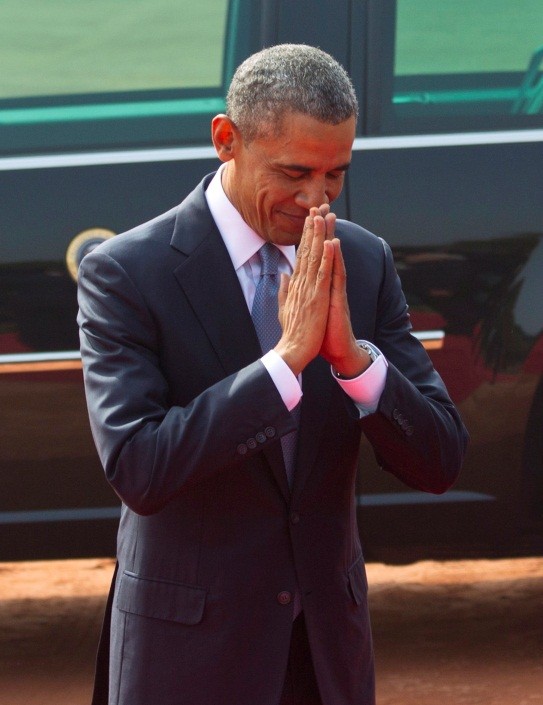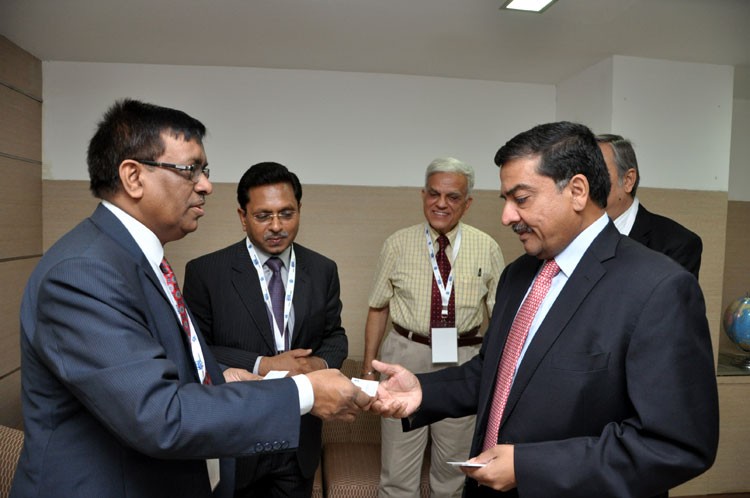In the increasingly global business world that teams work across borders, understanding business cultures where you go is the key to success. One of the biggest challenges to overcome when entering the India market or doing business in India is definitely its work culture. People do things differently in India. Indian business culture is the product of thousands of years of influence of Hinduism with an overlay of British Raj, Islam and recent Western business systems. Understanding its business etiquette can help improve hugely your chances of success in this market. Let alone, among many countries, there are just two business cultures that shine out as being so remarkably different. One is Japan. The other one is India.
You may want to have a look at:
25 Most Interesting Things about Japanese Business Culture that You Mayn’t Know (Part 1)
25 Most Interesting Things about Japanese Business Culture that You Mayn’t Know (Part
1. Retaining talent is a key factor in growth strategies

For an Indian CEO, time spent on HR issues is as much as, even more than time spent on market shares and revenues.
In India, there is a high demand for talent; that’s why lots of attention is being paid to securing and engaging the talent. Though in the U.S, it is important to do so, the stress on it mayn’t be as high. By contrast, in India, the top priority is retaining the key talent pool. There is flexibility in deployment of policies related to people here. A good example is healthcare. In most US enterprises, it would be stringently by the process; a clear definition is given to what the employer will pay for and what it won’t. Differently, in Indian companies, flexibility and compassion would find a place in that regard.
2. Greeting

U.S. President Barack Obama uses the Namaste during a ceremonial reception at the Indian presidential Palace in New Delhi, India on Sunday, Jan. 25, 2015.
Indians themselves use the Namaste when greeting. This is where palms are brought together at the chest level with a slight bow of the head. Using Namaste is a sign that you understand Indian etiquette. Whilst Namaste is perfectly fine in the North, Namoskar (holding the palms of hand flat together, touching thumbs first to third eye area between eyebrows, and then touching the thumbs to the heart) is more appropriate in the East. Standard English greetings are fine in South, Web and the North-East.
If you do business in India, giving a handshake is common in meeting etiquette. One may like to combine handshake with Namaste, so do the Namaste and shake hand if the nonverbal cue says so. In urban India, it is absolutely fine to shake hands with women unless the nonverbal cue says otherwise. A male-male hug isn’t recommended, nor a kiss on the cheek of a woman even if you know that woman very well.
If you give a firm handshake, don’t always expect to get the same grip in return. Not all Indian businesspeople give firm handshakes as a limp handshake signals respect, not weakness.
When addressing an Indian that you don’t know personally, always use the appropriate formal title, whether Mr., Mrs., Doctor, Professor or Sir/ Madam if you don’t know their names. Even when you know them personally but meet them in the presence of others, default to formal.
3. Business cards

Contact and networking are really important in India; that’s why Indians like to give and receive business cards. Business cards are often exchanged at the first meeting, generally after the handshake and greeting. It is unnecessary to have your card translated into Hindi because English is widely spoken in the Indian business community.
Your business card should include your name, company name, title, email address and such information as your company mailing address and website, any higher degrees or honors that you hold. For Indians, the business title on the card is greatly significant. Don’t be surprised to see the education qualifications on lots of Indian business cards.
Think twice about including your mobile number on the business card. If you give your cell number to an Indian, the lucky recipient may use it freely. Indians deal with this by writing out their cell phone numbers on the cards they present to a select few.
Many Indians don’t fill up their business cards with acronyms, and you can follow their lead. Still, Indians greatly emphasize academia, so note it on your card if you hold a doctorate degree or the like.
Make sure you give and receive cards with your right hands. This practice is followed in Islamic countries and many parts of Africa.
4. Language

English is the common language when conducting business in India. If you aren’t from an English speaking country, then you must have your brochures and any promotional material prepared in English.
Though English is widely spoken and used, there are nuances of Indian English. For example, there are such local meanings of terms as 'godown' (warehouse), 'Himalayan blunder' (grave mistake), 'deadly' (intense or very good), etc. Likewise, you may find people here using terms like 'cousin-sister', 'cousin-brother', or overuse such terms as 'obviously', 'simply', 'actually', etc. in their sentences.
In addition, the pronunciation varies across the country, which can sometimes make it hard to understand spoken English. However, you can request a person to repeat what he/ she has said slowly. Such a request from a foreigner isn’t regarded as a discourtesy.
5. Building relationships

Build trust with your Indian partner if you want to kill the deal.
Indians just deal favorably with those they know and trust. Then be mindful of the importance of good working relationship. Take time to engage in small talks, get to know your prospective partner and pull off your positive traits of honour and trustworthiness. Rush straight into the business issue can be perceived as rudeness.
Related reading:
Tips to make a better cooperative relationship all over the world
6. Meetings and negotiations

Meeting should be arranged in advance. This should be done in writing and confirmed via phone. Avoid meetings close to or on national holidays – for example, Independence Day, Diwali (Festival of Lights). Avoid hot weather by scheduling between October and March.
Punctuality is expected. Still, being 10 minutes late won’t cause disastrous consequences. Flexibility is of prime importance. Family responsibilities are prioritized over business, and then it is possible for last minute cancellations when doing business in India.
When entering the meeting room, you must always approach and greet most senior figure first. Meetings often start with some conversation – this is part of get-to-know process. Favorable topics of conversation are latest business news, fortunes of Bombay Stock Exchange or cricket. Just avoid talking about personal matters, religion, Pakistan, Kashmir, the poverty, or beggars.
If your business dealing in this country involves negotiations, then bear in mind that they can be slow. If trust has not been established yet, then pour your efforts in developing a rapport. The highest level always makes decisions. If the Director or owner of the company isn’t present, then the chances are that those are early stage negotiations.
Indians don’t just make their business decisions based on statistics, data and engaging PowerPoint presentation, but intuition, feeling and trust. Always be patient, show good character, and never show frustration or anger.
Business decision making is slowed down also because your direct contact isn’t authorized to give decisions and has to consult with his boss. That’s why you should always try to get in contact with most senior managers at business meetings. Their influence will accelerate the process and save you valuable time.
Avoid high pressure tactics when negotiating. Don’t be forceful or confrontational. Express criticisms and disagreements using the most diplomatic language. Indian society averts saying ‘No’ because it is deemed rude due to possibility of triggering disappointment or offense. Carefully listen to Indian’s responses to your questions. If such terms as “We will see”, “I will try”, or “possibly” are used, the chances are that they’re saying ‘No’.
When negotiations end successfully, keep on the relationship-building process with a celebration dinner.












Replies to This Discussion